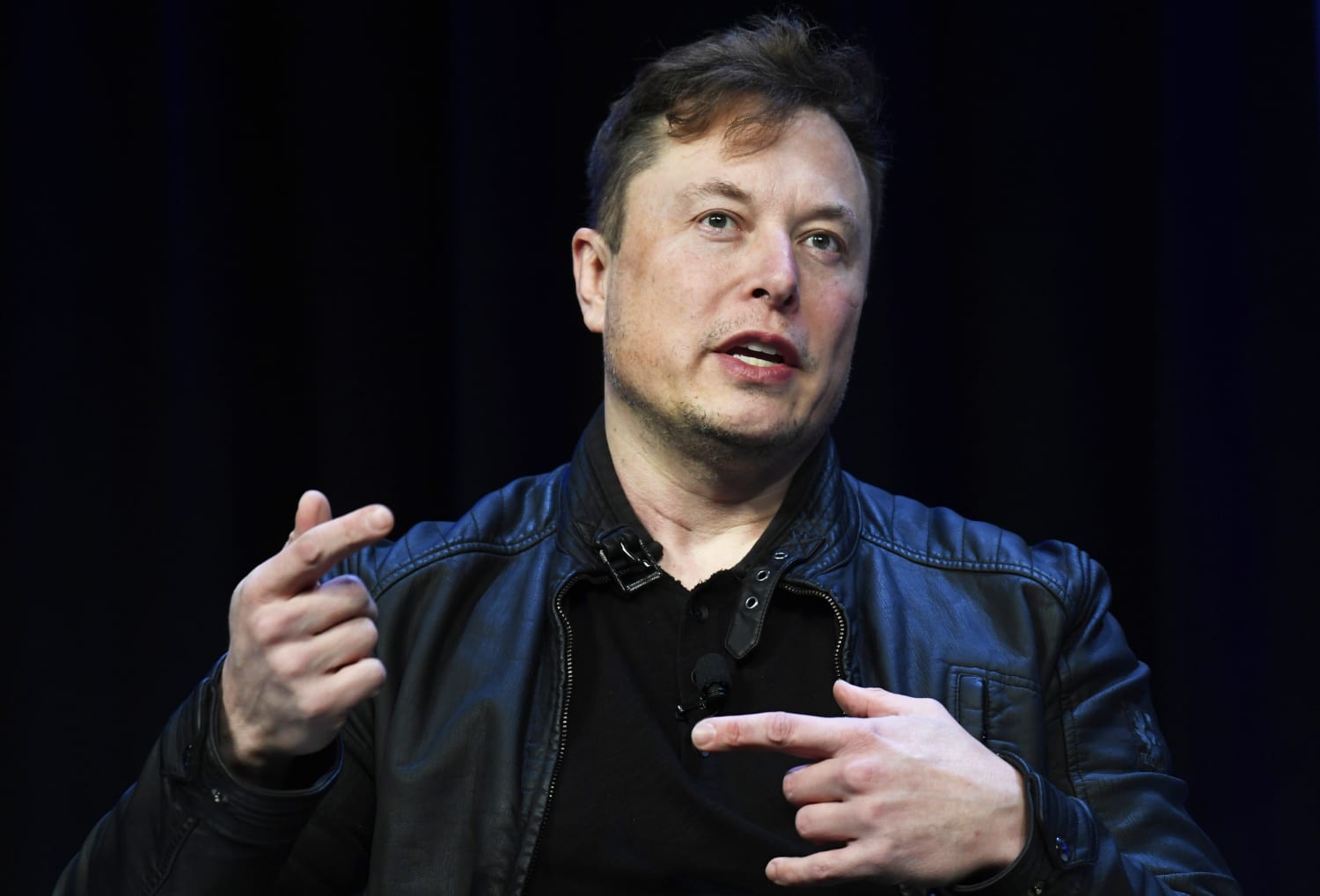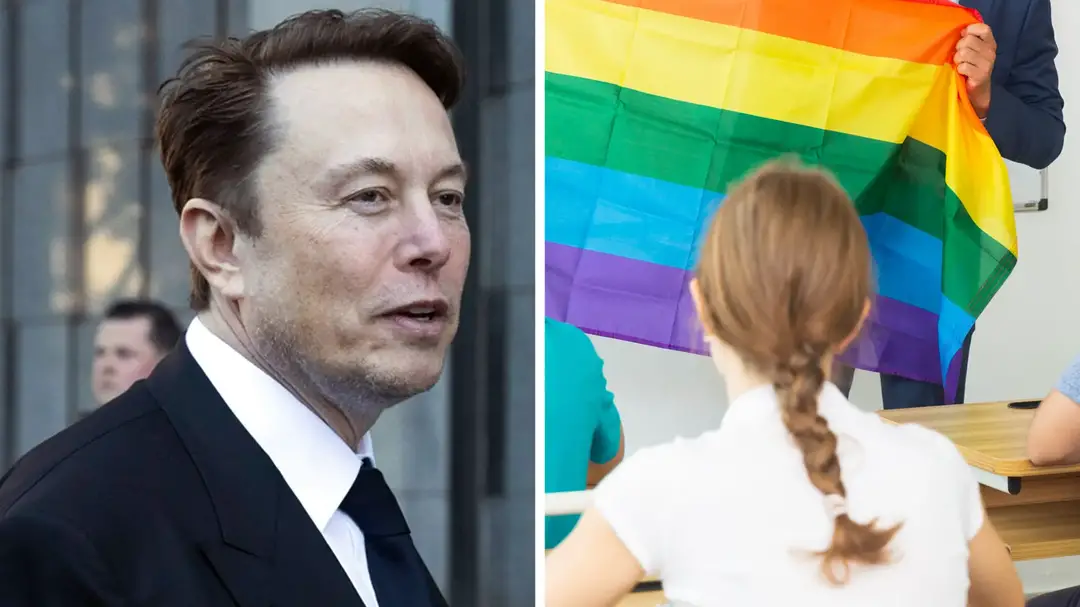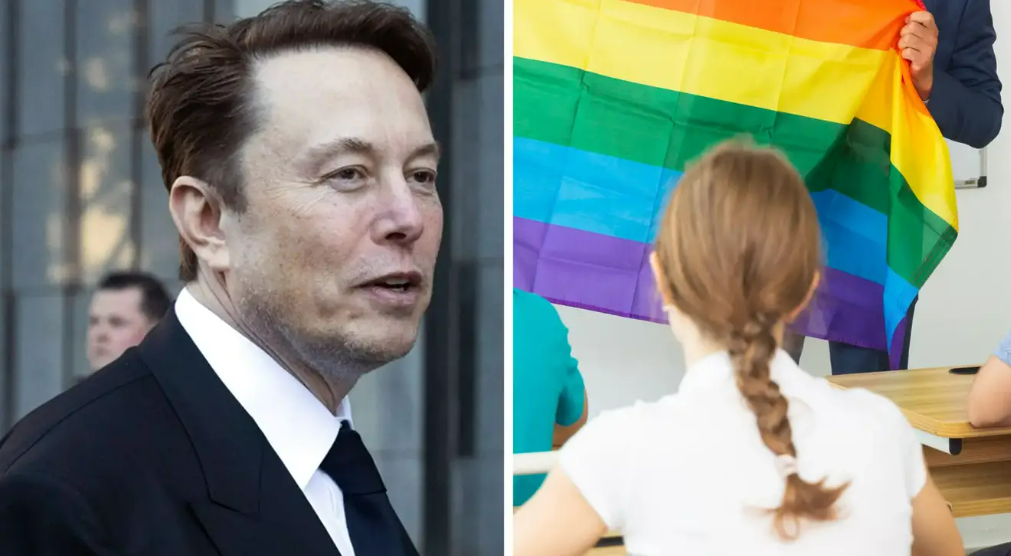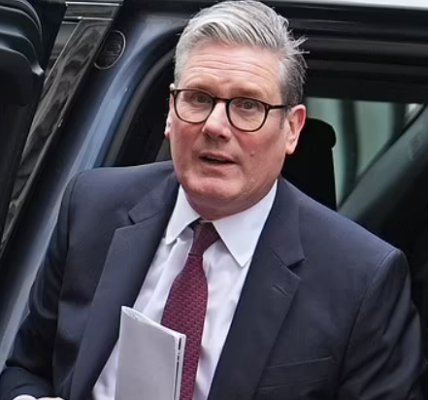This latest declaration from the tech mogul follows a growing pattern of his public statements on hot-button cultural issues, cementing his role as not only the man behind Mars missions but also the leader of the anti-woke brigade.
Musk, known for his ability to stir public discourse with as few as 280 characters, once again flexed his Twitter muscles with this bold stance. Within minutes, his tweet began trending, sparking immediate and polarized reactions from all corners of the internet. Some praised Musk for his “bravery” in tackling what they see as unnecessary displays of identity politics in education, while others lambasted him as out-of-touch and unnecessarily divisive.
Conservative circles were quick to rally around Musk’s statement, with some dubbing him “the voice of reason” in a world gone mad with inclusivity. Social media was flooded with memes, celebratory hashtags, and images of classroom walls being stripped of their colorful flags in favor of good old-fashioned American patriotism.
“Finally, someone with influence is stepping up to say what we’re all thinking,” tweeted one conservative commentator. “Pride flags belong at parades, not next to the periodic table.”
On the other hand, critics of Musk’s position saw the statement as a thinly veiled attack on the LGBTQ+ community and an attempt to strip away the progress made over the last few decades. Many Twitter users, celebrities, and advocacy groups took to the platform to call out Musk for what they perceived as an “unnecessarily provocative” stance.
“You can send people to Mars, but you can’t tolerate a rainbow flag? Get with the times, Elon,” tweeted one prominent activist. Another user quipped, “I’d rather see a Pride flag in a classroom than one of Elon’s rockets stuck in a student’s science project.”

Within hours of Musk’s tweet, school boards and educators across the country were left scrambling to navigate the unexpected spotlight cast on an issue that many thought had already been resolved. A spokesperson for the National School Boards Association commented, “It’s not every day that the world’s richest man tweets about classroom decor. Needless to say, this isn’t something we were prepared for.”
While some school districts in conservative areas showed early signs of leaning into Musk’s controversial idea, others firmly rejected it. “We believe in fostering an environment of inclusivity and respect for all students,” said a principal at a Los Angeles high school. “If a rainbow flag makes one student feel seen, then it’s worth it.”
In response to the backlash from some schools, Musk followed up with another tweet: “Don’t get me wrong, kids can still have rainbows in their drawings… just not plastered on the walls in the name of an agenda.”
As usual, Musk’s comment quickly spilled beyond the confines of social media and the classroom, sparking discussions in boardrooms and offices across the country. Many of Musk’s peers in the business world chose to stay silent on the matter, not eager to wade into yet another one of his Twitter storms. However, some did voice their opinions.
“Education should be free of distractions. I applaud Elon for saying what many of us are too afraid to,” said one CEO who requested anonymity (and who also happens to run a company that relies heavily on SpaceX for satellite launches).
Meanwhile, companies like Ben & Jerry’s and Disney, known for their vocal support of LGBTQ+ issues, were quick to issue statements opposing Musk’s sentiment. “We stand with all students, regardless of who they are or who they love. Our classrooms should reflect diversity, not hide it,” read a statement from Disney, accompanied by an obligatory rainbow heart emoji.
As is typical with any Musk Twitter event, it didn’t take long for the internet’s creative forces to get to work. Memes ranging from Musk holding a Pride flag in his Mars Rover to animated sequences of rainbow rockets launching into orbit quickly flooded timelines. The “Ban the Flag” movement, as it became known, even gained traction in meme-ified news segments, complete with commentators discussing the logistics of sending all Pride flags to the Moon.
Late-night hosts couldn’t resist jumping into the fray either. Stephen Colbert quipped, “Elon Musk wants to ban Pride flags from classrooms, which makes sense. He’s already banned subtlety from Twitter.”
SNL produced an entire sketch parodying Musk’s decision-making process in Tesla HQ, where, instead of focusing on electric cars or space exploration, the billionaire held an emergency boardroom meeting to discuss his next target in the “culture wars.” Spoiler: It wasn’t the oil industry.
For his part, Musk seemed unbothered by the wave of criticism and ridicule that followed his tweet. In fact, true to form, he seemed to be enjoying it. When asked in a subsequent interview whether he had any regrets about making such a divisive statement, Musk chuckled. “Look, we have bigger things to worry about than flags. How about we focus on getting to Mars, curing diseases, and making classrooms about learning math and science again?”
However, it remains to be seen if Musk’s quip will translate into actual policy changes in schools, or whether this is just the latest battle in an ongoing cultural war that shows no signs of slowing down.
Musk wrapped up his media blitz with a statement that left both his supporters and detractors guessing. “If they want to put flags up in classrooms, fine. But if I’m sending rockets into space, they better make sure it’s my flag flying up there, not a rainbow one.”

As the dust settles from yet another Musk-induced Twitter frenzy, one thing is clear: The conversation about what belongs in classrooms is far from over. While Elon Musk may have kicked off this latest debate, it’s now up to school boards, parents, and educators to determine what will (or won’t) fly in America’s classrooms.
For Musk, however, it’s just another day in the life of a billionaire provocateur—one who seems to be just as interested in shaping the culture of Earth as he is in exploring the final frontier.
And as always, the world waits eagerly for his next move.
NOTE: This is SATIRE, it’s not true.


